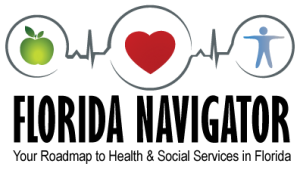Is Gambling or Drinking A Problem?
By Robert Goodman, MSW
Many older adults experience problems with gambling, misuse of prescription drugs, alcohol, anxiety, and depression. It is estimated that around 20% of older adults face mental health issues. Anxiety and depression are the most common mental health problems faced older adults.
There are many symptoms associated with depression. Some of the most common symptoms are:
- Hopelessness
- Sleep problems
- Social withdrawal
- Eating more or less than usual
- Loss or interest in once pleasurable activities, including sex
- Frequent crying
- Difficulty focusing, remembering, or making decisions
- Thoughts of death or suicide, or a suicide attempt
If you have several of these symptoms for more than two weeks, you may have depression.
The abuse or misuse of drugs was once considered a problem only among the young. According to the American Geriatric Society, substance abuse has become a growing problem among older adults as well. Misuse of alcohol or other drugs is a common cause of physical and mental health problems among older adults, especially men.
Four questions can provide a quick way to determine alcohol abuse:
- “Have you ever felt you should slow down on your drinking?”
- “Have you ever felt annoyed at criticism about your drinking?”
- “Have you ever felt guilty or bad about drinking?”
- “Have you ever felt the need for an “eye opener” in the morning to steady your nerves?”
A “yes” answer to any two of these questions indicates that a problems is likely? A “yes” answer to even one of question indicates a possible problem that should be further evaluated.
(Source: AGS Foundation for Health in Aging)
According to the Florida Council on Compulsive Gambling a growing percentage of Florida seniors are developing serious gambling problems. Symptoms of problem gambling among older adults include:
- Preoccupation with gambling
- Withdrawing from family, friends or regular activities because of gambling
- Neglecting personal needs or health due to gambling
- Gambling larger amounts of money to experience the thrill
- Betting more than planned
- Experiencing unaccounted blocks of time due to gambling
- Communicating a sudden need for money or loans
- Uncomfortable feelings or lying when questioned about gambling habits
- Gambling to calm nerves, forget worries or reduce depression
- Experiencing mood swings based upon winnings and losses
- Pawning or selling personal items
- Feeling restless or having anxiety when trying to cut down or stop gambling
- Using retirement funds or other savings to gamble
- Attempting to stop gambling but unable to do so
Answering “yes” to one of more of these questions may indicate a gambling problem. For information or help contact the 24 hour FCCG helpline at 1-888-236-4848.
There is no shame asking for help if you have one of these problems. Help is available through psychotherapy, consumer education, inpatient or outpatient management of symptoms, medication.
Call 211 for information on local programs to assist you in dealing with depression, anxiety, problem drinking, or problems related to gambling.
Take action today! If you or if you know of someone who may have an alcohol or gambling problem get help. There are several resources for help with these issues. They include:
Gamblers Anonymous 855-222-5542
Alcoholics Anonymous 561-994-5000
Crossroads Club 561-278-8004
Jewish Recovery Center 561-450-5503


